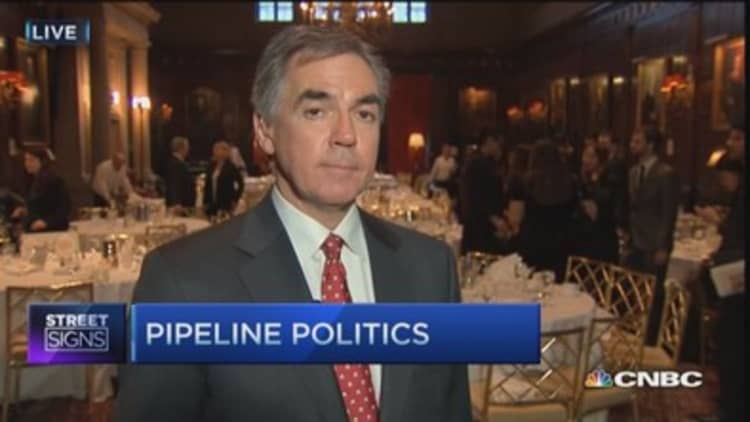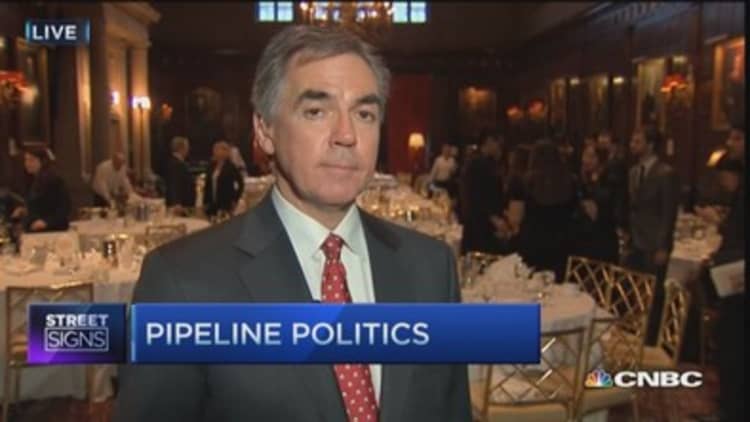
The steep drop in oil prices will lead to some slowdown of economic activity in Alberta, Canada, and the deferral of large capital investments in its oil sands, but Alberta Premier Jim Prentice told CNBC Friday its economy is resilient and will weather the rout.
"This will be a difficult time. We're assuming this will carry on for next 18 months or so and that we'll be in a low-price environment," he said in an interview with "Street Signs."
"We expect there will be some falloff in conventional drilling activity, shale drilling activity as well, clearly, but at the end of the day our economy is resilient."
Canadian rig count is down 13 rigs from last week, to 381, according to Baker Hughes. It is down 240 rigs from last year.
However, oil production is going to increase.
"We'll actually be experiencing production increases over the next two years, notwithstanding low oil prices."
Most of the oil in the region comes from oil sands, which produce about 1.9 million barrels of oil a day. In fact, Alberta's oil sands are the third-largest crude oil reserve in the world. The province has proven oil reserves of 170 billion barrels.
Read More
Prentice expects to see economic to slow down in cities like Calgary, but said Alberta has a strong public balance sheet and strong companies.
About 121,500 citizens are directly employed in Alberta's mining, oil, and gas extraction sectors.
"I think there will be some consolidation to strength as we work our way through this. And certainly there will be implications and we're concerned about that and we're planning for that," he said.
That said, while he's seen a deferral of large capital investments on new increments of oil sands investments and a reduction in capital expenditure in traditional oil and gas activity, Prentice sees a light at the end of the tunnel.
"Much of this will respond to low prices and the best cure for low prices is, of course, low prices. Higher prices will return. This will be part of a cycle, and we'll eventually see the other side of this."
Keystone Pipeline

Meanwhile, legislation that would approve the Keystone Pipeline, which would carry oil from Canada's oil sands to the Gulf, is working its way through Congress but President Barack Obama is expected to veto the measure.
The pipeline is "in the best interest of the United States," Prentice said.
Read More
The premier just returned from a visit to Washington D.C., where, he said, he was struck by the level of bipartisan support for the pipeline. He said he was assured a veto is just another step in the process and that it could come back in another bill.
"I don't know how it will play out from here."
—CNBC's Jackie O'Sullivan contributed to this report.


